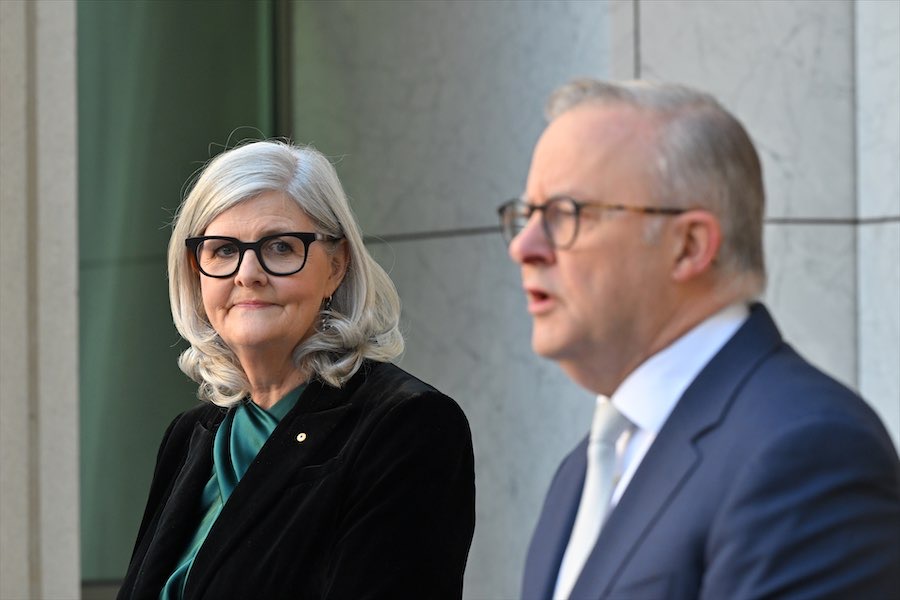Former registered nurse ANTHONY NOAKES, of Florey, writes that ICU ?nurses face the same emotional impact as doctors as they, too, care for? critically ill patients and their families.
I REFER to ?the article regarding Prof Imogen Mitchell (“Breaking bad news can be bad news for ?doctors”, CN, November 28).
 I was a registered nurse with two decades’ experience ?working in ICU, including a period as the charge nurse at the Canberra Hospital ?ICU, where I worked with Prof Mitchell during her tenure as medical director.
I was a registered nurse with two decades’ experience ?working in ICU, including a period as the charge nurse at the Canberra Hospital ?ICU, where I worked with Prof Mitchell during her tenure as medical director.
I was ?pleased to read her acknowledgement of the emotionally challenging? and demanding personal costs when talking to relatives and family concerning ?the grave prognosis of their loved one.
Prof Mitchell’s increased awareness and sensitivity in this area has no doubt been ?influenced and enhanced by her interactions with the many experienced and? skilled nurses she has worked with who care for such patients and families on a? daily basis.
Although ?the article’s focus was on doctors and Prof Mitchell’s personal experience, I was? disappointed that she failed to at least acknowledge the work of ICU ?nurses and that they face the same emotional impact as they, too, care for? critically ill patients and their families.
Nurses are? on the front line 24 hours a day, every day, providing direct care, monitoring ?and immediate response to any changes in the patient’s condition. Medical staff ?can leave the ICU confident that the patient is under the care of a nurse. ICU? specialists work on rotation, as they did during Prof Mitchell’s tenure, where ?after a week they were relieved of clinical responsibilities for a number of? weeks.

Nurses? provide support and comfort to families long after the demanding discussions Prof ?Mitchell so eloquently describes. Nurses, who ?also routinely attend these meetings, provide ongoing support to families as? they try to come to terms with the news they have received.
During my time ?in ICU I was privileged to work with many exceptional nursing colleagues, ?highly skilled and experienced in both the clinical and emotional care of?critically ill patients and their stressed and grieving families. This undoubtedly took a toll on them but, as ?with today’s nurses, it did not prevent them from coming to work each day and ?providing ongoing care and support.
The Canberra community can be?very proud of these nurses, their many years of dedicated service and ?commitment, and of the legacy that today’s ICU nurses have inherited from them.
<
p style=”text-align: right;”>Anthony? Noakes, Florey
Scientists are not fear mongers
I SEEK to respond to Colliss Parrett’s comments in his letter (“Truth is the first casualty”, CN, November 28) concerning the Declaration of a Climate Emergency by more than 11,000 scientists published in the journal “Bio-Science” on November 4.
I have also done my homework upon reading Colliss’ letter. I have downloaded and printed the entire list of signatories, which runs to some 300 pages! I then took a random list of names and checked their affiliations. All were in some way involved in humankind’s relationship with the planet, including a vast number of climate and earth scientists, as well as geologists, atmospheric chemists, ecologists, plant biologists, animal species specialists and some medical doctors. There were also PHD students and other undergraduates. There was NO “Mickey Mouse” in the list! As I went through the lengthy process, I thought: “Why are these people putting their names, affiliations and possibly their careers/reputations on the line?”
I am sure readers are aware of the attempts to silence scientists in recent years who dare to speak out about “climate change”. Fortunately these experts care more for the planet than their positions.
The decline in deaths from natural disasters that Parrett mentions is, in most part, due to advances in our understanding of the physical processes that cause catastrophic natural events such as floods, cyclones and storm surges etcetera that impact civilisation.
The very same studies, programs and theories that enable science to warn of these events, so we can prepare for, or mitigate, their impacts, also give us the data to predict future developments in the earth’s changing climate and severe weather events that will impact us all, if we don’t curb our use of fossil fuels.
I have spent most of my working life, spanning half a century, in the study of weather and climate. I became aware from reading scientific studies that our climate, which is always changing, was now changing at an unprecedented rate.
Since 1985 I have devoted much of my spare time to the study of this phenomenon. Now retired, I devote most of my time to this concern. I fear my grandchildren will bear the inevitable cost, if we do not act now!
Colliss Parrett, we scientists are not fear mongers. I strongly refute your inferences on behalf of my concerned colleagues.
Gavin A O’Brien, Southside Weather Watch (ACT), Gilmore
What’s the justification?
THE people and lobby groups wanting legalisation of illicit drugs readily admit that licit drugs kill more than illicit drugs.
So on what basis of reasoning, compassion, and social conscience can they even attempt to justify what can only mean more deaths?
Colliss Parrett, Barton
Who can be trusted?
In a world of spin and confusion, there’s never been a more important time to support independent journalism in Canberra.
If you trust our work online and want to enforce the power of independent voices, I invite you to make a small contribution.
Every dollar of support is invested back into our journalism to help keep citynews.com.au strong and free.
Thank you,
Ian Meikle, editor





Leave a Reply